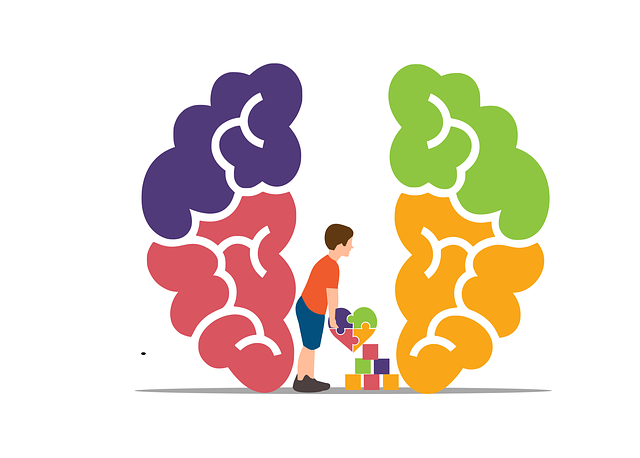Mental health advocacy groups like the Stress Management Workshops Organization in Boulder are vital for creating well-being-focused societies. Boulder Codependency Therapy offers a unique blend of group sessions, individual counseling, and podcasts to tackle codependency. Community engagement, through partnerships between healthcare providers, schools, community centers, and faith-based organizations, enhances mental health awareness. Their collaborative efforts provide practical tools for emotional well-being and reduce stigma. Measuring success through data-driven approaches guides policy advocacy for accessible and effective services like Boulder Codependency Therapy.
Mental health advocacy initiatives are transforming lives and communities, with programs like Boulder Codependency Therapy leading the way. This unique approach focuses on understanding interdependent relationships and their impact on mental wellbeing. The article explores key aspects of mental health advocacy, including community engagement strategies that foster alliance for better mental health outcomes. We delve into successful measurement techniques to evaluate the profound effects of these initiatives, highlighting the importance of continuous improvement in this vital field.
- Understanding Mental Health Advocacy: The Need for Change
- Boulder Codependency Therapy: A Unique Approach to Support
- Community Engagement: Building Alliances for Mental Wellbeing
- Measuring Success: Evaluating the Impact of Advocacy Initiatives
Understanding Mental Health Advocacy: The Need for Change

Mental health advocacy initiatives are pivotal in creating a society that prioritizes and supports overall well-being. Understanding mental health advocacy involves recognizing the need for change on multiple levels, from raising awareness to providing accessible resources. In many communities, including Boulder, Codependency Therapy has emerged as a powerful tool to address complex interpersonal issues. However, beyond individual therapy, collective efforts are necessary to tackle broader systemic barriers that impact mental health.
The demand for comprehensive solutions is growing, prompting the establishment of Stress Management Workshops Organization and other like-minded groups. By focusing on evidence-based practices, these organizations aim to equip individuals with effective communication strategies and positive thinking techniques. Such initiatives not only empower people to take control of their mental health but also foster a supportive environment where open conversations about mental wellness are encouraged, breaking down stigma and promoting early intervention.
Boulder Codependency Therapy: A Unique Approach to Support

Boulder Codependency Therapy offers a unique and specialized approach to support individuals grappling with codependency issues. This therapeutic method focuses on helping clients understand and break free from unhealthy relationships and behaviors, fostering inner strength development. By addressing underlying emotional patterns, the therapy empowers people to build healthier connections and enhance their mental wellness.
The initiative incorporates various innovative techniques within its Mental Health Education Programs Design. Through a combination of group sessions, individual counseling, and even Mental Wellness Podcast Series Production, Boulder Codependency Therapy provides a comprehensive framework. This multi-faceted approach aims to educate, inspire, and equip individuals with the tools needed to navigate their journeys towards improved mental health and well-being.
Community Engagement: Building Alliances for Mental Wellbeing

In the pursuit of fostering better mental health within communities, engaging local residents and stakeholders is paramount. Community Engagement serves as a powerful tool in this advocacy, allowing for collective efforts to address mental wellbeing on a larger scale. By creating alliances between various groups—including healthcare providers, schools, community centers, and faith-based organizations—a supportive network can be established that tackles mental health issues head-on. This collaborative approach ensures that everyone involved is equipped with the necessary resources and knowledge, such as coping skills development and self-awareness exercises, to identify and support individuals facing challenges like depression prevention.
For instance, in Boulder Codependency Therapy, community engagement initiatives have shown promise in promoting mental health awareness and reducing stigma. Through partnerships with local schools and community events, these programs educate folks about the importance of mental wellbeing, offering practical tips and strategies for maintaining it. By integrating self-awareness exercises into daily routines, individuals can better understand their emotional needs, fostering resilience against common mental health issues like depression. Such alliances not only provide immediate support but also lay the foundation for long-term, sustainable mental health practices within the community.
Measuring Success: Evaluating the Impact of Advocacy Initiatives

Measuring success is a critical component of any advocacy initiative, especially when addressing complex issues like codependency and mental health. At Boulder Codependency Therapy, we believe in the power of data-driven approaches to evaluate the impact of our efforts. By implementing robust evaluation strategies, we can assess whether our programs are effectively reaching and supporting individuals in need. This involves tracking key metrics such as participant satisfaction, changes in emotional regulation, and improvements in overall mental health status.
Through regular Mental Health Policy Analysis and Advocacy, we gain insights into the effectiveness of our Crisis Intervention Guidance. By comparing pre- and post-program assessments, we can quantify the positive shifts in participants’ lives. These evaluations not only help us refine our practices but also provide compelling evidence to advocate for broader policy changes, ensuring that essential mental health services are accessible and effective for all.
Mental health advocacy initiatives, such as Boulder Codependency Therapy and community engagement strategies, are vital in addressing the global mental health crisis. By fostering alliances and evaluating impact through measurable outcomes, we can create a more supportive landscape for overall wellbeing. Initiatives like these not only revolutionize care but also empower individuals to take control of their mental health, ultimately leading to a healthier society.











